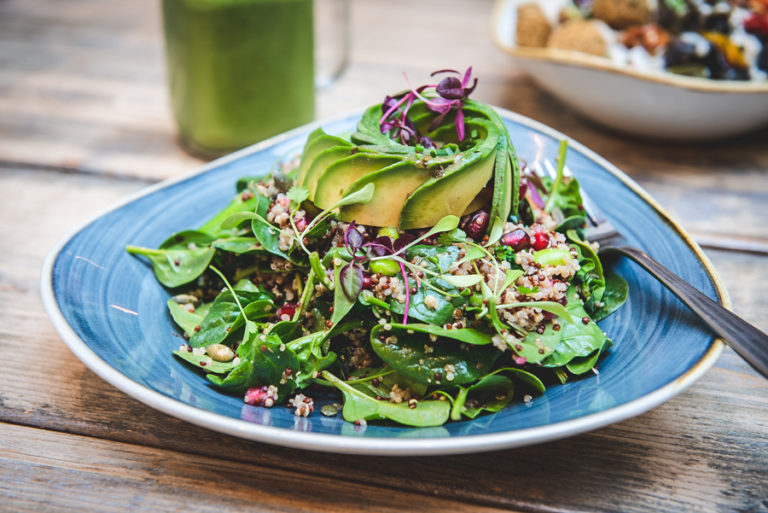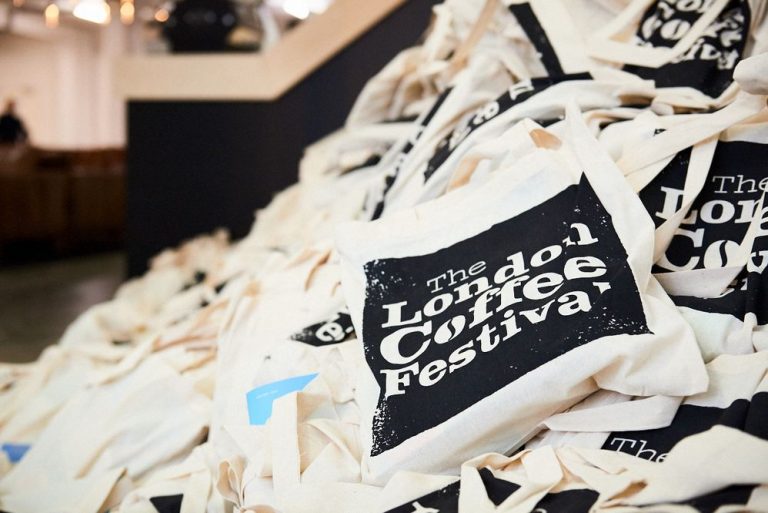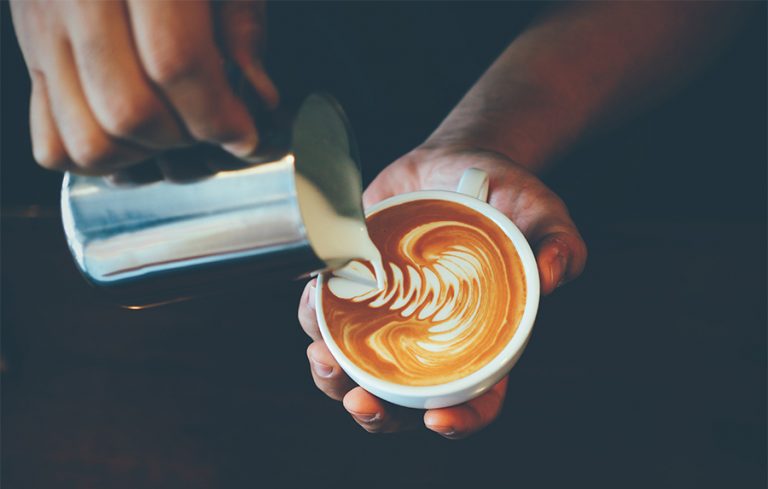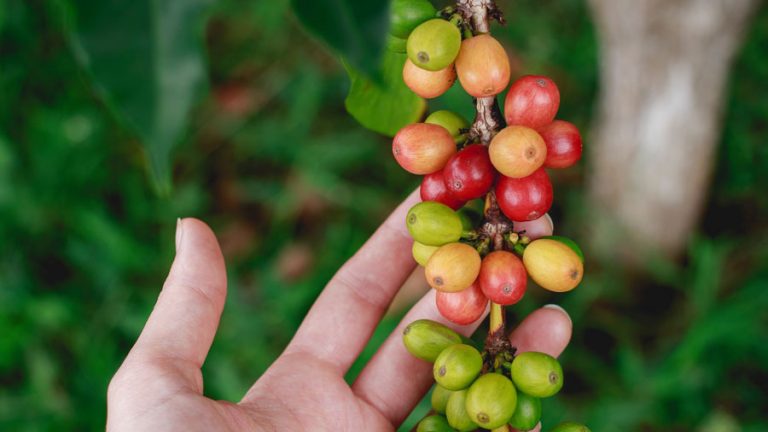
Coffee is having a moment. In a really big way. Admittedly, we Brits have been in love with coffee for a long time. But over the past few years, it’s outdone itself in popularity, giving rise to a huge number of new, interesting, and delicious coffees: speciality coffees. Drinkers are now interested in where their coffee was grown, what blend it is, and how it’s been roasted. And we’re lucky enough that the worthy people all along the line of coffee production are more than happy to share their knowledge of what goes into speciality coffee.
As passionate coffee-lovers ourselves, we’ve followed this coffee trend with gumption, and we serve a delicious speciality coffee, which we source from Richard, at Littlehampton-based Coffee Compass. Richard is a brilliant roaster with years of experience, having lived and breathed coffee from bean to blend for a long time. Our blend is made with six coffees, for a rich depth of flavour, and a perkiness that cuts through the milk. You can read more about Richard in our Meet the Roaster post – an oldie but a goodie.
If, right about now, you’re left wondering just what exactly speciality coffee is, have no fear. There’s a world of jargon out there, but we’re aiming to get to the bottom of what speciality coffee it.
All coffee, broadly speaking, can be defined as either speciality or commercial. There are some pretty weighty differences, so it makes for an interesting read. We’ll talk about some of the key differences below.
What is speciality coffee?
Many would argue that speciality coffee is better than commercial coffee. Certainly, more time and care goes into its production. There are more steps, more checks, and more manpower. Of course, there’s still a place for a cheap and cheerful cup of commercial coffee. And we’re not about to get snobbish about coffee that a lot of people know and love! Simply, speciality coffee and commercial coffee are worlds apart.
Speciality coffee can only be classed speciality when it is graded at 80 out of 100 by a certified coffee taster or licensed Q Grader. The Speciality Coffee Association of Europe (there’s also one in America) writes these guidelines, and there’s quite an involved (and buzzing!) community around speciality coffee.
Basically, it’s coffee that’s been grown at the perfect altitude, in the best soil, and picked at the right time. It then undergoes a whole series of checks, as well as careful manufacturing (often by hand, rather than by machinery) before it’s sold to premium coffee traders, or direct to coffee roasters.
Coffee cherries
Speciality coffee is interesting because even from the very beginning of the process, the cherry pickers are taught to only pick the fruit that’s perfectly ripe. No green (under-ripe) or black (over-ripe) cherries are allowed into a speciality coffee. Often the pickers are paid a higher wage, as the work is more difficult – they’re not stripping the trees, they have to hunt out the ripe cherries.
Speciality coffee must have no blemishes whatsoever, so there are multiple control checks that go into the process, including sorting through the beans by hand to discard any imperfect beans once they’re dried. Keeping this stage manual also creates jobs for the local communities, plus the defective beans are used in commercial coffee, so there’s no wastage.
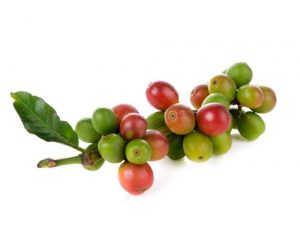 Once the bean has been milled and dried, the roasters then create custom profiles to enhance and highlight the coffee’s natural flavours, after which, baristas (that’s us!) get their hands on it and produce delicious coffees. Speciality coffee is generally roasted in very small warehouses, using traditional methods and technology. Often it’s sold where, or close to where, it’s been roasted.
Once the bean has been milled and dried, the roasters then create custom profiles to enhance and highlight the coffee’s natural flavours, after which, baristas (that’s us!) get their hands on it and produce delicious coffees. Speciality coffee is generally roasted in very small warehouses, using traditional methods and technology. Often it’s sold where, or close to where, it’s been roasted.
Flavour
Speciality coffee contains deeper and varying flavours, and there’s far more choice when it comes to buying speciality, rather than commercial coffee. You can choose based on where the bean was grown (Colombia, Kenya), by roast (Italian, French), by blend, price, or flavour.
The aim of speciality coffee? Flavour.
What is commercial coffee?
Commercial coffee, on the other hand, is the coffee you can easily find in supermarkets, under big name brands.
During the picking process of commercial coffee, any cherry is fair game. This means commercial can end up with green, red, and black beans in it, plus the defective beans that were separated from the speciality coffee beans. Of course, it’s good to reduce wastage, but over and under-ripe beans cause an inherent bitter flavour.
Interestingly, the defective beans are called pasilla, and make the coffee that most Colombians drink day to day.
Commercial coffee undergoes far fewer checks and is often manufactured by machinery on a mass scale. The beans are roasted and packaged in large plants, and because they’re blended to suit a wide palate, offer a limited selection of roast and blend.
If you’re after a cheap and cheerful cup of coffee, commercial coffee’s not to be sniffed at, but for us, who want to serve fantastic coffee to our customers, it’s an easy decision to buy speciality coffee.
The aim of commercial coffee? Affordability.
